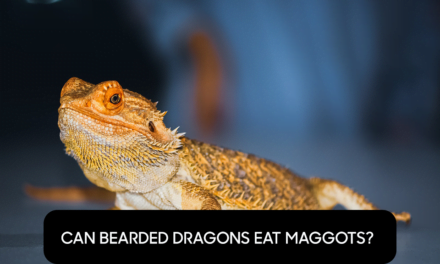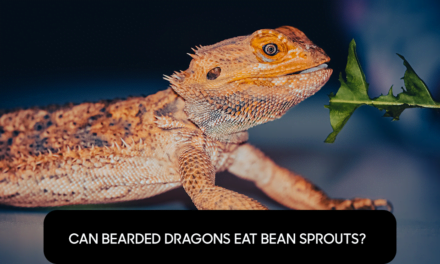
When you’re looking for a sweet treat to give your bearded dragon, plums might seem like a good idea. However, they can be risky if you’re not careful.
They contain a high phosphorus content, which means they should be offered as a rare treat. They can also be a choking hazard, so make sure to remove the pit before giving them to your pet.
Plums are a good source of Vitamins
Plums are a delicious and nutritious fruit that is full of vitamins and minerals. They can help your bearded dragon stay healthy and avoid diseases like diabetes, high blood pressure, cancer, and heart disease.
They also help lower the risk of Alzheimer’s and Parkinson’s disease. These fruits contain antioxidants that help prevent inflammation in the brain, promoting cognitive function and keeping memory in top shape.
Another benefit of plums is that they are a good source of potassium, which helps control blood pressure and reduce the risk of stroke. The antioxidants in plums also protect the body from free radical damage, which can lead to various diseases and conditions.
The fruit is a good source of vitamin C, which plays an important role in the development and maintenance of skin and hair. It can also help prevent acne and improve your eyesight.
Aside from these benefits, plums are also a good source of dietary fiber. It has both soluble and insoluble fiber, which helps keep the digestive system functioning properly.
These fibers can also act as natural laxatives and help promote bowel regularity. It can also help lower cholesterol levels and decrease the risk of heart disease.
You can eat fresh plums as they are or enjoy them in recipes. They can be added to breakfast dishes, pies, ice pops, oatmeal, salads, and yogurt.
They can also be dried and used to make jams and compotes. To prepare plums for cooking, wash them well and remove the pit. They can be cut into halves, quarters or diced for other recipes.
The fruit is very juicy and is a great source of antioxidants. This is because the reddish-blue pigments in plums, called anthocyanins, mop up free radicals in your body and help prevent disease.
Aside from these health benefits, plums are also a great source of Vitamin A and fiber. These nutrients can help your eyesight, maintain a healthy weight, and increase your energy level.
These antioxidants can help lower the inflammation that is associated with heart disease. They can also lower the risk of depression and anxiety.
Plums are a good source of Fiber
Bearded dragons should eat a variety of fruits and vegetables. They can eat fruits such as apples, berries, raspberries, peaches, bananas, pears, and watermelon. However, it is best to keep fruit intake to 10% of their total feed.
Fruits are a source of vitamins, minerals and antioxidants that are essential to their health. They also aid in digestion and prevent constipation by promoting bowel regulation. The water content in fruits also helps them hydrate well and absorb much-needed fluids.
Pomegranates are sweet and tangy in flavor and provide good amounts of Vitamin C and K along with dietary fiber. They should be offered as an occasional treat to bearded dragons.
Raisins are dried grapes that provide the same dietary fiber as pomegranates but lower Vitamin C and antioxidants. They should be fed rarely as they have high sugar and oxalic acid levels.
Cherries, which are related to plums and peaches, are a good source of Vitamins A and C as well as moderate dietary fiber. They should be fed as an occasional treat and not so often due to the higher phosphorus content.
Beet greens are a leafy vegetable that is high in protein and calcium as well as dietary fiber. They should be prepared raw, cut, shredded or grated into small bite size and then washed thoroughly.
Other leafy greens such as kale and mustard greens should be avoided by bearded dragons. They have high oxalates that can cause hypothyroidism in a bearded dragon.
Plums are a good source of soluble fiber, which is beneficial for maintaining a healthy digestive tract. It helps reduce the rate at which your stomach fills up with food, and it has the added benefit of being a natural blood sugar normalizer.
These benefits are a result of the soluble fiber’s ability to dissolve into a gluey mass that traps fats, sugars, bacteria and toxins. It then scours the digestive tract lining, breaking down carbohydrates and lowering bad cholesterol levels.
In addition, soluble fiber in plums helps normalize blood sugar and has a positive impact on insulin sensitivity. This is important because it helps prevent diabetes and reduces triglyceride levels in the body.
Plums are a good source of Potassium
There are a lot of different fruits that bearded dragons can eat, but plums are one of the most popular. They have a variety of nutrients that can benefit your bearded dragon, including vitamins, minerals, and fiber.
Plums are a good source of potassium, which is an important mineral for your bearded dragon. Potassium helps lower blood pressure, and it also lessens the tension in your blood vessels, which can reduce the risk of strokes.
Another great thing about plums is that they are a good source of antioxidants. These antioxidants can help prevent cell damage and cancer. They also promote heart health, reduce high cholesterol, and fight off free radicals.
Many people love to make a sweet-tart jam or chutney with plums. You can also use them in cakes and pies, or even as a topping for meats like chicken or pork.
Fruits are an excellent source of fiber, which can help keep your bearded dragon healthy by reducing the chances of them developing diabetes and other diseases. In addition, fiber can help slow down the absorption of sugar in your bearded dragon’s body and give them a better chance to avoid a sugar crash.
It is best to feed your bearded dragon fruits and vegetables in moderation, as too much of any food type can lead to a buildup of toxic chemicals in their bodies. In order to minimize the risk of toxicity, make sure your bearded dragon’s diet includes a wide variety of foods.
Some of the fruits that bearded dragons can ingest include apples, grapes, and strawberries. However, bearded dragons should only eat strawberries in moderation as they have a poor Calcium to Phosphorus ratio.
Other fruits that bearded dragons can gulp down and enjoy are peaches, papaya, and pears. These fruits are rich in micronutrients and can provide a healthy snack for your bearded dragon, but they should be prepared fresh and served in small bite sizes.
You can also give your bearded dragon a handful of blueberries, raspberries, and blackberries as a treat. These fruits are a good source of Vitamin C and are also a source of potassium and fiber. But be sure to monitor your bearded dragon after he or she has eaten these fruits to ensure that they do not develop an upset stomach.
Plums are a good source of Calcium
If you are a bearded dragon owner, then you know that it is important to offer your pet dragon a variety of foods. This helps them stay healthy and happy, and you can also make sure they are getting all of the nutrients they need to grow and thrive.
One of the most important vitamins to bearded dragons is calcium, which they need in large quantities for many metabolic functions in their body. These include skeleton formation, muscle contraction, blood clotting, and bone matrix mineralization. If your bearded dragon is not getting enough calcium, they may develop metabolic bone disease (MBD) which can lead to painful skeletal problems.
You can easily add calcium to your bearded dragon’s diet by using a powdered supplement that you lightly dust onto their food every other day or two times a week. You can also supplement their diet with fresh vegetables like carrots and bell peppers that are rich in calcium, vitamin D3, and beta-carotene.
Plums are an excellent source of calcium and other essential nutrients. They are rich in antioxidants, which help protect the body from free radical damage and toxins that can cause health problems.
They are also high in fiber, which helps promote digestion and keeps the digestive system functioning properly. They are also low on the glycemic index, which means that they won’t spike your blood sugar levels.
However, it is important to remember that plums are not a complete food and therefore should be added to your bearded dragon’s diet sparingly. You can feed your pet dragon plums a few times a week as part of their normal diet, but only when you are sure that they will enjoy it and will digest it correctly.
If you do decide to feed your pet dragon plums, make sure you wash them well before serving them and remove the pit so that they won’t eat it. If you don’t do this, your pet may experience stomach issues or other issues.
When choosing a plum, make sure it has a good calcium to phosphorus ratio and is not too acidic. This will ensure that your bearded dragon won’t suffer any digestive problems from eating too much of it.





